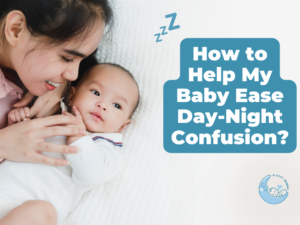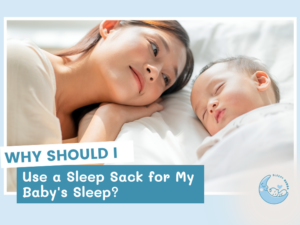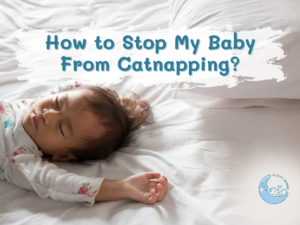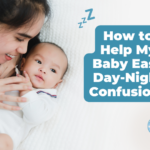Enquire Now with FREE 15 Mins Call
How to Cope With Separation Anxiety In Babies
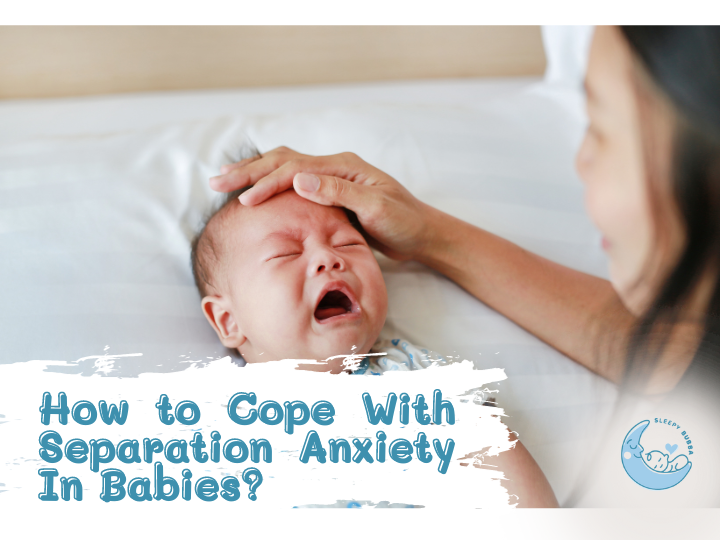
Separation anxiety is a common experience for young children, and it can be particularly challenging. Whether you’re searching for a “baby sleep trainer near me,” you’ve likely encountered moments when leaving your little one alone feels nearly impossible. It’s that heart-wrenching moment when you need to step away, even just for a moment, and your baby clings on to you as if their world is ending. It can be frustrating and exhausting, but rest assured, it’s a natural part of your child’s development, and you’re not doing anything wrong by wanting to take a break.
Understanding Separation Anxiety
Separation anxiety can manifest in different ways. Your baby might refuse to be put down or may cling on to your legs whenever you leave the room. These behaviors are typical as your child begins to develop the concept of object permanence, usually around 6 months old. They are starting to understand that you still exist even when you’re not physically present, which is a new and sometimes confusing concept for a baby. It’s essential to remember that your child’s cries are not accusations of abandonment; they are expressions of their need for security and connection.
Tips for Easing Separation Anxiety
Separation anxiety is a natural part of a child’s development, and it’s something most parents will encounter, especially when transitioning their children to the care of babysitters or teaching them to sleep independently. If your baby is experiencing separation anxiety at bedtime, here are some tips to help ease the process for both of you:
1. Create a Safe Environment
Ensure that your child’s environment is safe and childproofed. Knowing that they are in a safe space can help ease their anxiety when you’re not around.
2. Establish a Calming Bedtime Routine
If you haven’t already established a bedtime routine, now is a good time to start. Begin bedtime routine 30-40 minutes before your child needs to sleep to allow for a longer winding-down period. A soothing routine might include putting them in a sleep sack, reading a bedtime story, saying the sleep phrase, turning off the lights, and gently laying your baby down in their cot. A consistent routine provides your child with a sense of security and predictability when bedtime rolls around.
3. Avoid Quietly Leaving
While it might seem tempting to slip out of the room while your child is momentarily distracted, this can heighten their separation anxiety. It’s better to be upfront about your departure. Let your child know that you’re leaving but reassure them that you will be back. Building trust and security is essential.
4. Offer comfort
If your baby is crying when you leave the room, it’s fine to offer comfort. Soothe your baby, calm them, and assure them. Trust your child’s ability to understand and adapt.
5. Stay Calm and Reassuring
It’s essential to stay calm and reassuring when dealing with separation anxiety. Your child will pick up on your emotions, so if you’re anxious or upset, they are more likely to feel the same way. Be a source of comfort and reassurance for your child.
6. Introduce a Comforting Object

Babies learn by observation and imitation. You can leave a lovey in your child’s cot. Before you leave the room, show your child that you’re saying goodbye to the toy, just as you’re saying goodnight to them. This can help your child feel more connected even in your absence.
Conclusion
In conclusion, separation anxiety is a normal part of a child’s development, but it can be exhausting, especially when you’re running on little sleep. If your child’s separation anxiety is severe and persistent, consider seeking the guidance of a child psychologist or therapist. They can provide strategies and techniques to address your child’s anxiety effectively. While separation anxiety can be challenging, it’s an essential part of your child’s emotional development. By following these tips and being patient and loving, you can help your child navigate through this phase with greater ease. Remember that you’re not alone in this journey, and there are professionals like baby sleep trainers and newborn sleep consultant Singapore who can provide guidance and support. Why wait? Consider scheduling a complimentary 20-minute discovery call with Sleepy Bubba. We’re here to support you on your parenting journey. Your child’s well-being and your peace of mind are worth the effort.

